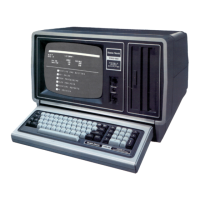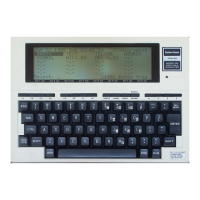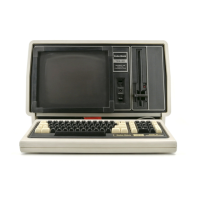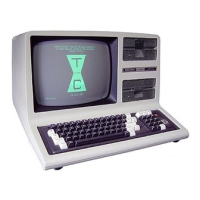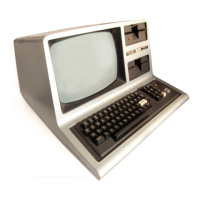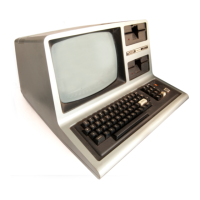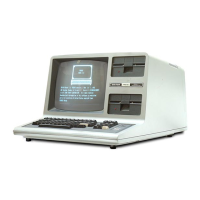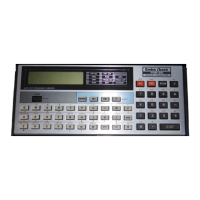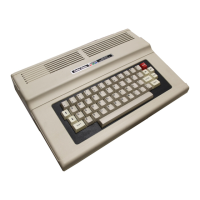Do you have a question about the Radio Shack TRS-80 Model 16 and is the answer not in the manual?
Customer's responsibilities regarding computer hardware and software specifications, capabilities, and operating environment.
Details Radio Shack's 90-day warranty for equipment and software, including conditions and customer remedies for defects.
Specifies limitations on Radio Shack's liability for damages arising from equipment or software use, including profit loss.
Grants a non-exclusive license to use Radio Shack software, outlining terms for reproduction, distribution, and copyright.
Defines the scope of warranty terms for sales and licensing agreements between Radio Shack and the customer.
Informs the customer about specific legal rights granted by the warranty, which may vary by state.
Provides guidance on how to use the manual to get started with the Model 16, covering operation, programs, and commands.
Instructions for starting up the computer system after installing the 16-Bit Enhancement Kit on a Model II.
Instructions for starting up a newly purchased TRS-80 Model 16 computer system.
Step-by-step guide for physically setting up and connecting the TRS-80 Model 16 computer components.
Procedure for powering on the TRS-80 Model 16, including hard disk and peripheral startup.
Detailed steps on how to properly insert the Model 16 Systems Diskette into the computer's disk drive.
Overview of the two primary types of storage devices: floppy diskettes and hard disks.
Information about floppy diskettes, their types (single-sided, double-sided), and handling precautions.
Description of hard disks, their storage capacity, speed, and durability compared to floppy diskettes.
Instructions for transferring the Model 16 Systems Diskette contents to the primary hard disk drive.
Explanation of how to enable or disable write-protection on diskettes and hard disks to prevent data alteration.
Categorization of programs distributed by Radio Shack: operating systems and application programs.
Explanation of operating systems (TRSDOS-16, TRSDOS-II, TRSDOS) and their role in computer operation.
Description of application programs like Assembler-16 and BASIC, used for diverse tasks.
Steps required to load and run a program stored on disk into the computer's memory.
Procedure for loading TRSDOS-16 programs, using EDIT16 as an example.
Steps to load the TRSDOS-II operating system and the BASIC application program.
Instructions on how to safely remove and insert diskettes while the system is running.
Process of preparing a new or blank diskette for data storage by organizing its tracks.
Method for creating backup copies of TRSDOS-16 or TRSDOS-II diskettes, including system and data diskettes.
Procedure for backing up TRSDOS diskettes, noting differences and requirements compared to TRSDOS-16/II.
Guidance on performing disk backups when using multiple floppy disk drives with TRSDOS-16/II.
Instructions for backing up TRSDOS diskettes when only a single floppy disk drive is available.
General guidelines for the care and handling of floppy diskettes to prevent damage and data loss.
Specific precautions for handling, storing, and protecting floppy diskettes from environmental hazards.
Instructions on how to properly label diskettes using appropriate writing instruments.
Recommendations for periodic preventative care of floppy disk drives to ensure longevity.
Tips for preventing data corruption caused by static electricity or AC power fluctuations.
Explanation of common operating system errors, their codes, and suggested actions for resolution.
List of boot error codes, their descriptions, and recommended actions to troubleshoot startup failures.
Guidance on handling errors specific to application programs, referring users to program manuals.
Information on expanding the computer's RAM capacity with memory boards and chip kits.
Details on increasing storage capacity by adding a second internal floppy disk drive to the Model 16.
Information on enhancing storage capacity and speed with hard disk interface boards and drives.
Description of disk expansion units for Model II, allowing addition of multiple floppy disk drives.
Overview of how to use graphics boards and printers to create visual illustrations and reports.
Guidance on connecting serial or parallel printers and using the TRS-80 Modem II for communication.
| Brand | Radio Shack |
|---|---|
| Model | TRS-80 Model 16 |
| Category | Desktop |
| Language | English |
